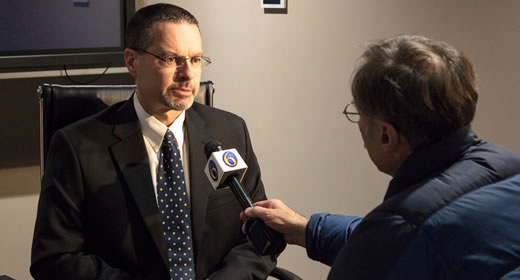
ANN ARBOR—Nearly half, or 47 percent, of local leaders from the largest jurisdictions in Michigan say they lack sufficient funding to fight crime in their areas, according to the latest Michigan Public Policy Survey (MPPS), "Most local officials are satisfied with law enforcement services, but almost half from largest jurisdictions say their funding is insufficient," from the Ford School's Center for Local, State, and Urban Policy (CLOSUP).
These are also the very places that perceive crime to be much more of a problem compared to small places, said Tom Ivacko, CLOSUP administrator.
Looking statewide, 22 percent of local officials say that they don't have sufficient funds to meet their law enforcement needs. Since 2001, the number of police officers declined by more than 4,000 and there are 23 fewer law enforcement agencies in the state, according to state data.
While population declines and service-sharing approaches may have allowed some jurisdictions to maintain law enforcement service levels with reduced staffing, many large jurisdictions in the state report funding concerns.
"Our studies have found local government fiscal health is recovering very slowly from the Great Recession, even as demands increase for police services, infrastructure maintenance, and much more," Ivacko said.
Other key findings from the latest Michigan Public Policy Survey include:
- More than half (54 percent) of local leaders statewide say drug crimes are somewhat of a problem or a significant problem in their community.
- Property crimes such as burglary, vandalism, identity theft or embezzlement are rated as a community problem by 48 percent of local officials statewide.
- Satisfaction with law enforcement services is high, with local officials saying they are either somewhat or very satisfied with performance of the state police (74 percent), county sheriff (79 percent), and local police (94 percent) in those jurisdictions that have them.
MPPS surveys were sent Oct. 5-Dec. 8, 2015, via hard copy and the internet to elected and appointed officials in Michigan. A total of 1,418 jurisdictions returned valid surveys, a 76-percent response rate. The margin of error was 1.3 percent.
--Release by Greta Guest, Michigan News.